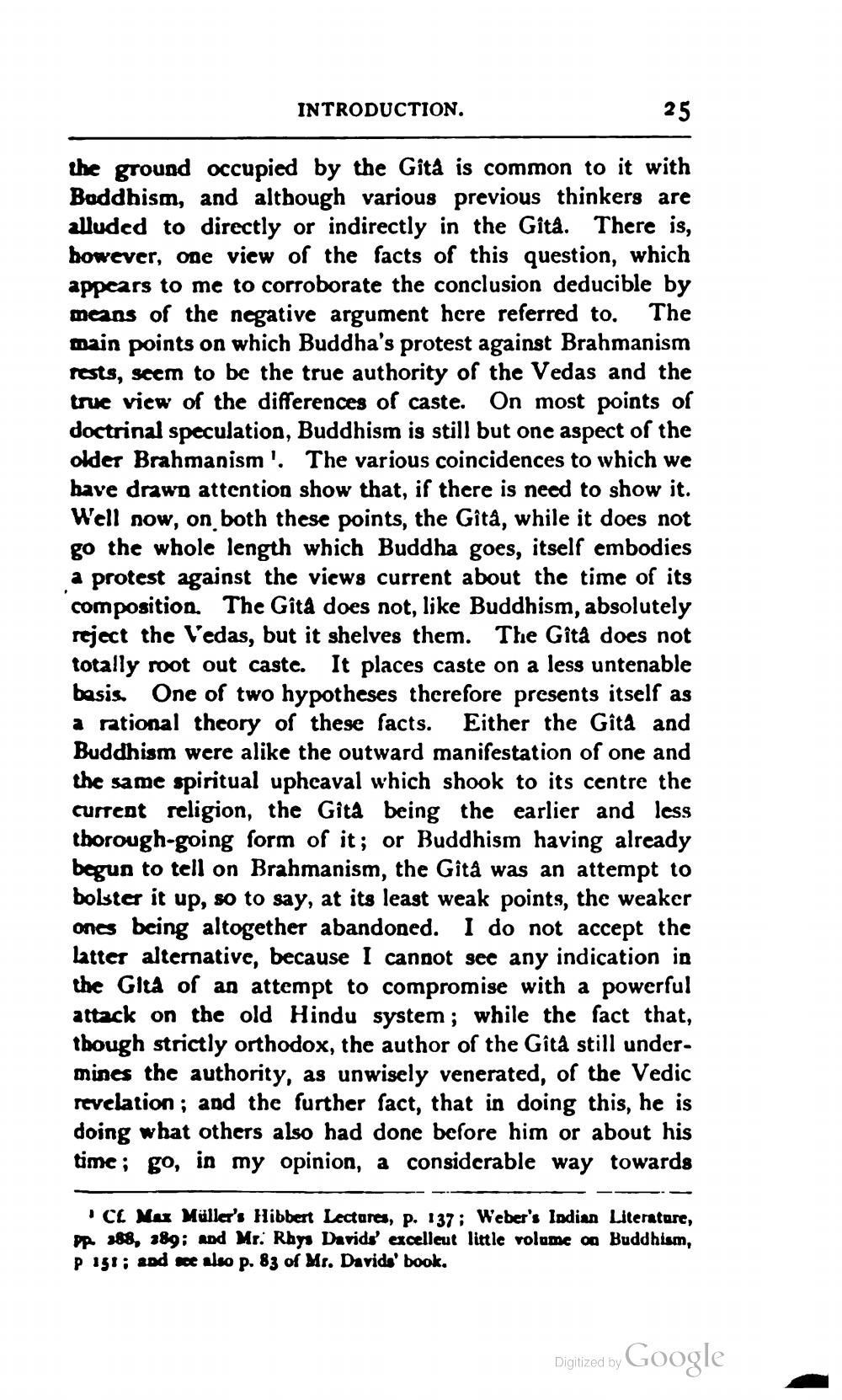________________
INTRODUCTION.
the ground occupied by the Gità is common to it with Boddhism, and although various previous thinkers are alluded to directly or indirectly in the Gita. There is, however, one view of the facts of this question, which appears to me to corroborate the conclusion deducible by means of the negative argument here referred to. The main points on which Buddha's protest against Brahmanism rests, seem to be the true authority of the Vedas and the true view of the differences of caste. On most points of doctrinal speculation, Buddhism is still but onc aspect of the older Brahmanism'. The various coincidences to which we have drawn attention show that, if there is need to show it. Well now, on both these points, the Gîtå, while it does not go the whole length which Buddha goes, itself embodies a protest against the views current about the time of its composition. The Gitá does not, like Buddhism, absolutely reject the Vedas, but it shelves them. The Gîtå does not totally root out caste. It places caste on a less untenable basis. One of two hypotheses therefore presents itself as a rational theory of these facts. Either the Gita and Buddhism were alike the outward manifestation of one and the same spiritual upheaval which shook to its centre the current religion, the Gîta being the earlier and less thorough-going form of it; or Buddhism having already begun to tell on Brahmanism, the Gîtå was an attempt to bolster it up, so to say, at its least weak points, the weaker ones being altogether abandoned. I do not accept the latter alternative, because I cannot see any indication in the Gita of an attempt to compromise with a powerful attack on the old Hindu system; while the fact that, though strictly orthodox, the author of the Gità still undermines the authority, as unwisely venerated, of the Vedic revelation; and the further fact, that in doing this, he is doing what others also had done before him or about his time; go, in my opinion, a considerable way towards
ICL Ma Müller's Hibbert Lectures, p. 137 : Weber's Indian Literature, Op 288, 189: Add Mr. Rhys Davids' acelleut little volume a Buddhism, pagt; and we also p. 83 of Mr. Davids' book.
Digitized by Google




